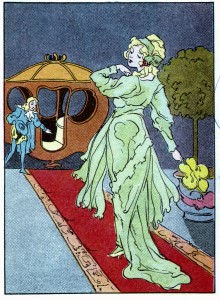
I collect vintage images–illustrations, as it were. Have for over 40 years. Paper ephemera, books, sheet music, postcards, Halloween, greeting cards, bridge tallies, you name it, if it’s illustrated art–I collect it. And on flickr I found a community of others just like me. I began sharing this collection as I continued making vintage illustration jewelry from my collections, and from things I found floating around on the fabulous internet. And, from some things I found on flickr-that was downloadable and in the public domain. What does that mean? I can only speak for the United States, because other countries have different laws, but, anything, anything printed before 1923 is in the public domain. Which means they are not protected or owned by any individual. I checked this over and over again, due to problems that occurred on flickr when I had the audacity to explain that I was going to start a digital download business, and that there was a slim possibility that some images from flickr streams may get into my business–inadvertently. I am nothing, if not stupid enough to be honest about what I am doing. This started a mini firestorm of flickr morality. And supposed legal questions. And here’s the point of this post.
